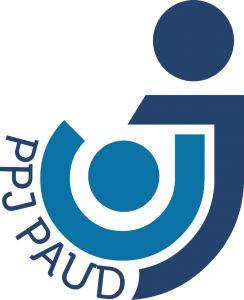Development of Project-Based Learning Integrated with Local Culture to Enhance Critical Thinking Skills of Students in Fine Motor Skills Development Course
DOI:
https://doi.org/10.30736/jce.v8i2.2245Keywords:
Project-Based Learning, Development of Fine Motor Skills, Local Culture, Critical thinkingAbstract
Students interest in local culture tends to decline, especially in the face of globalization's influence, which shifts cultural values. This study aims to develop a Project-Based Learning (PjBL) model integrated with local culture to enhance students' critical thinking skills in the course on the Development of Fine Motor Skills. This research is a development study or Research and Development (R&D) utilizing the 4D model (Define, Design, Development, and Dissemination). The research sample consists of third-semester students from the Early Childhood Education Teacher Program at Universitas Bengkulu for the 2024/2025 academic year. Data collection is conducted through interviews, observations, questionnaires, and documentation, while data analysis employs qualitative analysis methods. The results indicate that the local culture-based PjBL model meets the criteria of being valid, practical, and effective in improving students' critical thinking skills. This effectiveness is demonstrated through a three-phase trial showing significant differences in students' abilities before and after the implementation of PjBL. Future researchers are encouraged to implement the local culture-based PjBL model more broadly across various study programs and courses, as well as conduct further research to evaluate the long-term impact of PjBL implementation on the development of critical thinking skills and other learning aspects
References
Bell, S. (2020). Project-Based Learning for the 21st Century: Skills for the Future. Corwin Press.
Bitter, G. G. (2019). Project-Based Learning: A STEAM approach to teaching and learning. Journal of STEM Education, 20(1), 45-51.
Creswell, J. W. (2018). Research Design: Qualitative, Quantitative, and Mixed Methods Approaches. Sage Publications.
Dewi, S., & Jatiningsih, D. (2015). The importance of critical thinking skills for elementary school students. International Journal of Education and Research, 3(1), 11–18.
Elia, G., Margherita, A., & Taurino, C. (2021). Cultural Heritage and Digital Technologies: An Explorative Study of Collaborative Spaces for Young People. Springer.
Facione, P. A. (2015). Critical Thinking: What It Is and Why It Counts. Insight Assessment, 5(1), 1–30. www.insightassessment.com
Fisher, A. (2008). Critical Thinking: An Introduction. Cambridge University Press.
Kemdikbud. (2014). Pedoman Pelaksanaan Pembelajaran Berbasis Proyek (PjBL). Kementerian Pendidikan dan Kebudayaan.
Larmer, J., & Mergendoller, J. R. I. G. (2019). Project-Based Learning: A short history of an active learning strategy. In Handbook of Research on Active Learning and the Flipped Classroom Model in the Digital Age. IGI Global.
Mahmud, A., & Abdullah, B. (2019). Community engagement and the preservation of traditional knowledge: Aligning educational content with regional potentials. 12(3), 45–59.
Mahmud, M., Wibowo, H., & Suryani, D. (2018). Model Pembelajaran Berbasis Inkuiri untuk Meningkatkan Keterampilan Berpikir Kritis Siswa. Jurnal Pendidikan Dan Pembelajaran, 7(2), 234–245.
Nurul Fazriyah, A. (2016). The role of critical thinking in education: A study on students’ perceptions. Journal of Education and Practice, 7(16), 123–129.
Saputra, A. (2020). Understanding critical thinking: An organized process for problem solving. International Journal of Educational Research and Review, 5(4), 30–35.
Stanley, J. (2020). Project-Based Learning: An engaging classroom strategy. Educational Review, 72(2), 67–73.
Suastra, I. W. (2018). Integrating local wisdom into education: A framework for developing cultural sensitivity in education. Atlantis Press.
Sugiyono. (2020). Metode penelitian pendidikan: Pendekatan kuantitatif, kualitatif, dan R&D. Alfabeta.
Suradika, A., Dewi, H. I., & Nasution, M. I. (2023). Project-Based Learning and Problem-Based Learning Models in Critical and Creative Students. Jurnal Pendidikan IPA Indonesia, 12(1), 153–167. https://doi.org/10.15294/jpii.v12i1.39713
Suryawati, D., & Suharto, S. (2021). Revitalizing local wisdom for sustainable education. Atlantis Press.
Downloads
Published
How to Cite
Issue
Section
License
Copyright (c) 2024 Dwi Lyna Sari, Nesna Agustriana, Delrefi D, Lina Eka Retnaningsih

This work is licensed under a Creative Commons Attribution-ShareAlike 4.0 International License.
Please find the rights and licenses in JCE (Journal of Childhood Education). By submitting the article/manuscript of the article, the author(s) agree with this policy. No specific document sign-off is required.
1. License
Use of articles will be governed by the Creative Commons Attribution - ShareAlike license as currently displayed on Creative Commons Attribution-ShareAlike 4.0 International License.
2. Author(s)' Warranties
The author warrants that the article is original, written by stated author(s), has not been published before, contains no unlawful statements, does not infringe the rights of others, is subject to copyright that is vested exclusively in the author and free of any third party rights, and that any necessary written permissions to quote from other sources have been obtained by the author(s).
3. User Rights
JCE (Journal of Childhood Education)'s spirit is to disseminate articles published are as free as possible but there is a little payment for publication. Under the Creative Commons license, JCE (Journal of Childhood Education) permits users to copy, distribute, display, and perform the work for commercial purposes. Users will also need to attribute authors and JCE (Journal of Childhood Education) on distributing works in the journal and other media of publications.
4. Co-Authorship
If the article was jointly prepared by more than one author, any authors submitting the manuscript warrants that he/she has been authorized by all co-authors to be agreed on this copyright and license notice (agreement) on their behalf, and agrees to inform his/her co-authors of the terms of this policy. JCE (Journal of Childhood Education) will not be held liable for anything that may arise due to the author(s) internal dispute. JCE (Journal of Childhood Education) will only communicate with the corresponding author.
5. Miscellaneous
JCE (Journal of Childhood Education) will publish the article (or have it published) in the journal if the article’s editorial process is successfully completed. JCE (Journal of Childhood Education)'s editors may modify the article to a style of punctuation, spelling, capitalization, referencing and usage that deems appropriate. The author acknowledges that the article may be published so that it will be publicly accessible and such access will be free of charge for the readers as mentioned in point 3.
JCE (Journal of Childhood Education) by Universitas Islam Lamongan is licensed under a Creative Commons Attribution-ShareAlike 4.0 International License.Based on a work at http://journalfai.unisla.ac.id/index.php/jce.













